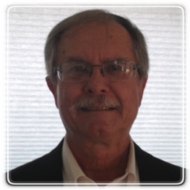 Life expectancy in the United States has increased considerably during the years since 1900. Of women born in 1900, only about 58% lived to the age of 65 (Johns Hopkins Medicine, 2009). In contrast to this, today the “oldest old,” those people age 85 or older make up the fastest growing part of society (Segen’s Medical Dictionary, 2012).
Life expectancy in the United States has increased considerably during the years since 1900. Of women born in 1900, only about 58% lived to the age of 65 (Johns Hopkins Medicine, 2009). In contrast to this, today the “oldest old,” those people age 85 or older make up the fastest growing part of society (Segen’s Medical Dictionary, 2012).
According to the American Psychological Association (Volz, 2000), Americans over the age of 65 have tripled in percentage of the population since 1900. By 2010, this segment of the population reached 13%. Projections for the future suggest the portion of the population age 65 and older may reach 20% by 2050.
These projected numbers show the dramatic increase attributable in part to the aging of the Baby Boomers. As of 2011, Boomers reached the age of 65 at the rate of 10,000 per day (Pew Research Center, 2010), and will continue at that rate for the next 19 years!
As this generation reaches that magical age, one of their most pressing issues is how to age well (Severson, n.d.). Boomers have always been the youthful generation; this will not change now that they’re aging. Indeed, the idea will likely become more important than ever to them.
Because of the tremendous number of the Boomer generation aging, more research interest has been and will continue being generated into the idea of aging successfully. The Boomer generation has gone beyond the stigma of aging to embracing aging – on their terms. And part of their terms has to do with aging successfully.
Theories of Aging
There are two major classifications of theories of aging. One deals with the biomedical arena and the other with the psychosocial arena (Bowling & Dieppe, 2005).
The biomedical theory concerns itself with the presence and amount of physical and mental decline and level of disability. Older adults are generally seen as those with significant physical problems leading to inability to function independently. This theory’s focus is on chronic conditions, risk factors for disease, good health, and the capacity for independence. This traditional medical model has not proved to be the best for addressing successful aging. One possible reason for this is the fact that as many of two-thirds of people reaching age 65 have at least one chronic disease.
The psychosocial theory addresses life satisfaction, level of participation in social activities, and psychological issues. There are three main social theories related to aging (Hudgens, 2012).
The Disengagement Theory on Aging Successfully. This theory of aging focuses on the withdrawal of the aging individual from life activities to make room for other people in society. The main idea is that society encourages the aging individual to retire totally. Another great factor in this theory is the thought that society also discriminates against older individuals. According to this theory, the aging individual unconsciously uses disengagement as a preparation for death.
Current belief is against this theory in that those who do not adhere to its tenets seem to age more successfully in both social and medical realms. Clearly, there is some social isolation with aging. People over 65 are now encouraged to continue with friends, stay in contact with relatives, and strengthen social bonds.
The Activity Theory on Aging Successfully. Another theory of successful aging focuses on people gradually getting away from activities in which they were engaged when younger in life. Losses in life bring on this abandoning of activities. Loss of job, loss of relatives and friends, possibly loss of hobbies due to lessened physical ability. Those older individuals who pull out of activities tend to become socially aged because of losing their identity.
There are ways to recover some of these losses. Staying active in hobbies even if at a less physically strenuous level, taking on a part-time job, continuing to learn no matter how old, and volunteering are ways to overcome losses and to stay involved.
The Continuity Theory on Aging Successfully. This theory views aging as a part of a continuous process through life. Proponents of this theory say there are no sharp changes in personality due to becoming older. People’s basic personality seems to stay consistent, according to this theory. Some characteristics may change and even improve depending on circumstances.
Flexibility and the ability to adapt to change are important. Rigidity and the inability to change will likely lead to social difficulties in older years. Adaptation to the world is a major factor.
Being satisfied with one’s present and past life has been proposed as a proper definition of successful aging (Bowling & Dieppe, 2005). Satisfaction includes positive outlook, feelings of control over life, independence, and good coping and adaptation skills. Aging successfully is regarded as a dynamic process.
 Myths of Aging
Myths of Aging
As with many life factors with which people may not be familiar, there are a number of myths prevalent about aging. And, just as with other issues in life, these myths are generally accepted as accurate. This belief may be the foundation of what some call a deeply ingrained societal bias against older people(Myths About Aging, 2007). The following myths were cited as appearing in Successful Aging, written by John W. Rowe and Robert L. Kahn in 1999.
- To be old is to be sick. A common belief is health goes downhill after 65. The fact is, most older people in the U.S. are healthy. Eighty-nine percent of people age 65 to 74 report no disability at all. Only 5.2% live in nursing homes compared to 6.3% in 1982. A major reason for this myth to be false is the decline in medical and behavioral conditions leading to chronic illnesses. The tremendous decline in infectious diseases in the 20th century also contributed to the better health of older Americans.
- You can’t teach an old dog new tricks. Generally, people believe learning stops when people reach a certain age, typically 65. However, research indicates people of all ages can learn. In fact, some research seems to suggest older adults can, given the right training, vanquish nearly twenty years of memory loss. Older adults are learning the new technology so prevalent in the world today, everything from operating computers to ATMs to mastering VCR programming.
- The horse is out of the barn. The belief behind this myth suggests that once a person reaches a certain age, the effects of lifelong risky behaviors like smoking, drinking, eating fatty foods, and not exercising cannot be reversed. The thinking is the habits developed with these behaviors are permanent. In fact, through adopting clean living behaviors, older adults can reverse the effects of a lifetime of bad habits.
- The secret to successful aging is to choose your parents wisely. Heredity has long been seen as the best predictor of successful aging. Actually, only about 30% of aging is due to genetics. In fact, genetics appear to become even less of a factor in aging as people grow older. Environment and lifestyle appear to become of more importance. Lifestyle factors are learned behaviors. People are responsible in a large part for their own old age.
- The lights may be on, but the voltage is low. The bias many in society hold toward older adults says sex is out. This is because of decreased physical and mental abilities. Certainly, there is a decrease in sexual activity as people age. But this is an individual issues related to cultural beliefs and norms, health, and availability of partners. Age by itself is not a major factor.
- The elderly don’t pull their own weight. Behind this myth is the belief that people who don’t work for pay are a burden on society. Not being paid for they do means older adults don’t contribute to society. In fact, two-thirds of older adults work at paid positions or unpaid volunteer work. Employers who hire older adults find met or exceeded expectations, with valuable insight and experience available to their businesses.
There are other common myths about aging as well. The following were reported in U.S. News & World Report (2009).
- Losing extra pounds leads to extended life. Actually, the Baltimore Longitudinal Study of Aging (NIH, 2014) found older adults with a slightly higher body mass index live longer than all others. Apparently, the extra fat supplies energy to the immune system in the instance where it’s fighting off an infection.
- Hearing aids are a necessity. Most people assume growing older automatically means growing more hard of hearing. Even though some hearing loss is common in older adults, only about 35% of 80-year-olds need an aid.
- Getting crotchety and withdrawn is expected. These changes in personality generally don’t occur naturally due to getting older. The older person’s basic personality stays the same as it was when younger. Diseases like dementia or stroke can bring on personality change.
- Senility is inevitable. Absent some sort of disease like Alzheimer’s that detrimentally affects memory, most older adults do well. Some forgetting is normal as people age. Typically, there is no memory loss that will severely impair independent functioning well into old age.
- Energy for exercise well into the 80s is not available. Evidence suggests people who begin exercising even in their 70s improve their heart function.
Realities of Aging
The major reality of successful aging is to keep in mind that decline, physically or mentally, is not a given. It is not inevitable.
Some believe cognitive capacity is a major factor in whether people will attain very old age and still remain active (Volz, 2000). Working to improve mental functioning is vitally important. Reversal of memory loss can be brought about through daily memory checks and regular mental exercises.
Continuing to possess and utilize cognitive abilities into old, old age is made possible by recent research that shows adults can continue to grow new brain cells (ibid.). This capability to generate new brain cells helps older adults increase learning and memory abilities.
Along with cognitive abilities per se is the necessity for a strong belief in self. Belief systems appear to be important because a person’s beliefs generally focus their thinking. So, if an older adult believes he or she is not able to handle certain memory or intellectual challenges, they probably will not be able to. On the other hand, if the belief is that the older adults can still cognitively deal with whatever comes along, the chances of them doing so increase dramatically. With the more negative beliefs, the older adult may not even attempt learning new things like how to learn to use the latest technology or enrolling in learning courses to learn how to learn and retain information.
More positive belief systems lead older adults to try new things and learn more information, thus leading to more feelings of self-efficacy and greater self-esteem. Both of these factors lead to more positive outlook on the world around them and decreases the likelihood of developing depression that can be so devastating to older adults.
Continuing social contacts and support greatly improves the lives of seniors also. With the deaths of relatives, friends, and spouses increasing as age increases, it is easy for older adults to withdraw, become isolated. Unfortunately, this increases the likelihood of depression and further deterioration both physically and mentally. Staying in contact frequently with those who are still alive and making new social contacts is a way of overcoming the losses that inevitably will occur.
These social contacts will help with older adults springing back from challenges whether these challenges are physical, mental, financial, or social (Boughton, 2009). Rather than folding under the pressures these challenges bring, the older adult who has a good social network can lean on the people in it to help them learn how to cope.
A very real necessity for older adults to develop is the willingness to ask for help when it’s needed. Being independent doesn’t mean being able to handle everything that could ever come to a person’s life. Rather it is knowing others who know how to handle these things and being willing to ask for their help.
_________________________________________________________________________________________________________________________________
Aging Successfully. (2014). How to age successfully. Retrieved from http://www.all-antiaging-guide.com/effects-of-aging/aging-successfully/
Boughton, B. (2009). Advice on aging successfully: an expert interview with Barbara Resnick. Medscape Medical News. Retrieved from http://www.medscape.com/viewarticles/709871.
Bowling, A., & Dieppe, P. (2005). What is successful ageing and who should define it? BMJ, 331(7531): 1548-1551. doi:10.1136/bmi.331.7531.1548.
Johns Hopkins Medicine. (2009). Aging successfully. Retrieved from http://www.hopkinsmedincine.org/news/publications/johns_hopkins_health/Summer_2009.
Kotz, D. (2009). 5 common myths about aging. U.S. News & World Report. Retrieved from http://health.usnews.com/health-news/family-health/articles/2009/02/20/5-common-myths-about-aging.
Myths About Aging. (2007). Let’s go dispel some aging myths. Retrieved from http://www.go60.com/myths.htm.
Pew Research Center. (2010). Baby boomers retire. Retrieved from http://www.pewresearch.org/daily-number/baby-boomers-retire/
Segen’s Medical Dictionary. (2012). Oldest old. Retrieved from http://medical-dictionary.thefreedictionary.com/oldest+old.
Severson, C. (n.d.) Are you aging successfully? Retrieved from http://www.selfgrowth.com/articles/Are_You_Aging_Successfully.html.
Vaillant, G.E., & Mukamal, K. (2001). Successful aging. Am J Psychiatry, 158:839-847.
Volz, J. (2000). Successful aging: the second 50. Retrieved from http://www.apa.org/monitor/jan00/cs.aspx.
About the Author
 C. Wayne Winkle
C. Wayne WinkleC. Wayne Winkle is a board-certified family psychologist with thirty years experience in the field. He earned his doctorate at Texas A&M University at Commerce where he wrote the major portion of a National Institute of Mental Health grant for the university. As a writer, he has published four novels with another on the way. His freelance writing also includes blog posts, web copy, sales letters, fundraising letters, and grant proposals for non-profits. He lives with his wife Vicki in Arkansas.
Professional Website:
http://www.theravive.com/blog/author/Dr.%20C.%20Wayne%20Winkle.aspx